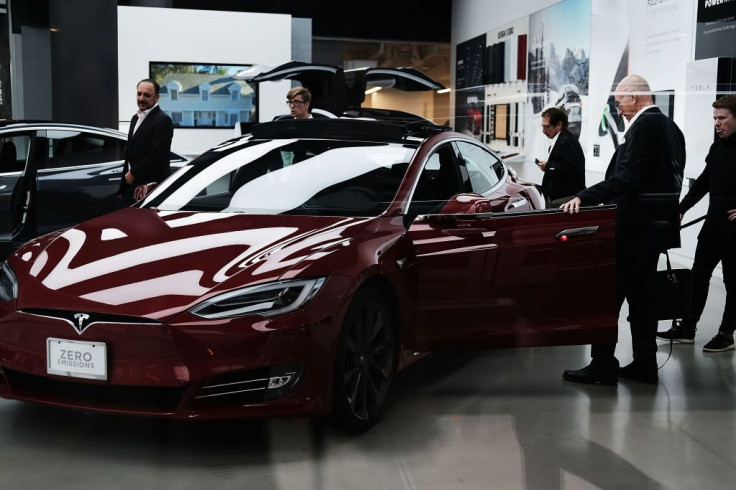Tesla Stock Drops 4% After Consumer Reports Slammed Model 3 Reliability

Tesla’s stock took an immediate hit after consumer-oriented research magazine Consumer Reports refused to recommend the Tesla Model 3 all-electric compact executive car because of the car’s reliability issues.
Apart from being key to Tesla’s aim of attaining profitability, the Model 3 is also the best-selling luxury car in America today. This electric vehicle (EV) is the cheapest among all three Tesla EVs in the market with its starting price pegged at $43,000.
Its two other stablemates are the Tesla Model S five-door liftback and Tesla Model X mid-size luxury crossover vehicle.
Tesla shares on Wall Street fell 2.3 percent after the Consumer Reports report was released Thursday. The new report raises questions about the reliability of the Model 3. Part of this was based on reviews of thousands of vehicle owners.
The new data from Consumer Reports was derived from its annual Owner Satisfaction survey, whose data encompassed July through September 2018.
"Consumers expect their cars to last -- and not be in the repair shop. That's why reliability is so important," said Jake Fisher, senior director of automotive testing at Consumer Reports.
"When we look at the Model 3 a lot of the issues are the electronics. There are some issues replacing the (navigation/infotainment) screens, for instance, but we've seen other issues in terms of the trim breaking and the glass."
Consumer Reports also said many customers reported problems with the Model 3, including loose body trim and glass defects. It also read reports of Tesla owners’ complaints regarding the fit and finish of their vehicles. The report also said the Model 3 it owned and tested had a rear window with a small stress fracture.
This new report confirms concerns raised by many analysts about the quality of Tesla models being compromised as the automaker feverishly boosted production last year to attain monthly production targets. CEO Elon Musk pushed hard to meet the ambitious (some say unrealistic) Model 3 production goal of 5,000 vehicles per month.
During the height of this frenzied effort, Musk was famously quoted as saying Tesla’s car factory in Fremont, California was in the midst of "production hell."
Last year, Consumer Reports witheld its recommendation of the higher-priced Tesla Model S sedan. This car lost its "recommended" status despite Consumer Reports giving the car an exceptional review score: 103 points on a scale only designed to go up to 100.

Of the 33 brands included in its 2018 survey, Tesla fell to 19th with a score of 66. The top five brands in the survey are Subaru (81), Genesis (80), Porsche (79), Audi (77) and Mazda (76). Jaguar and Fiat were the lowest, each with a score of 44.
Asked about Consumer Reports' review of the Model 3, a Tesla spokesperson said the company set an extremely high bar for Model 3.
“We have already made significant improvements to correct any issues that Model 3 customers may have experienced that are referenced in this report, and our return policy allows any customer who is unhappy with their car to return it for a full refund."
The spokesperson said that since the Consumer Reports review was based on data gathered from July to September 2018, “the vast majority of these issues have already been corrected through design and manufacturing improvements, and we are already seeing a significant improvement in our field data."
© Copyright IBTimes 2025. All rights reserved.





















